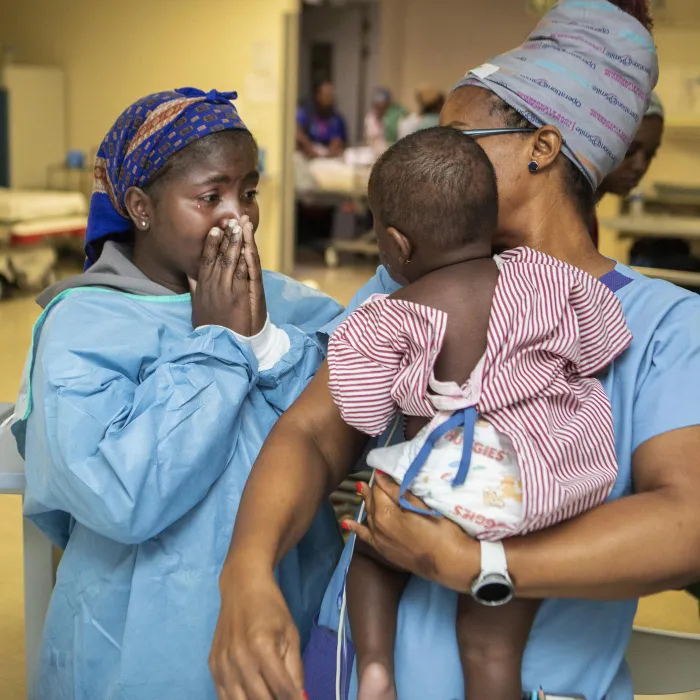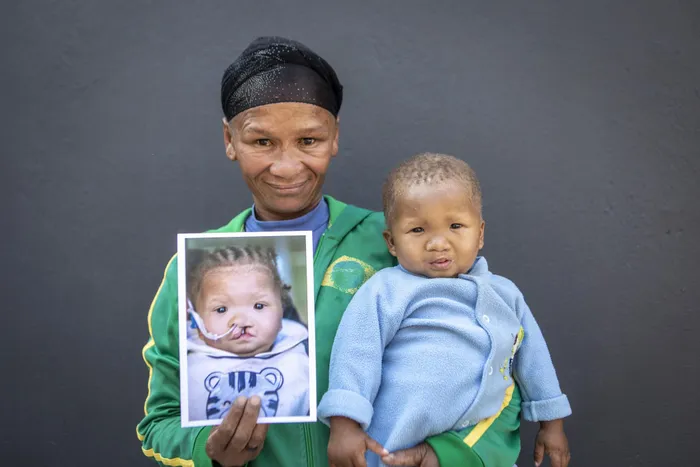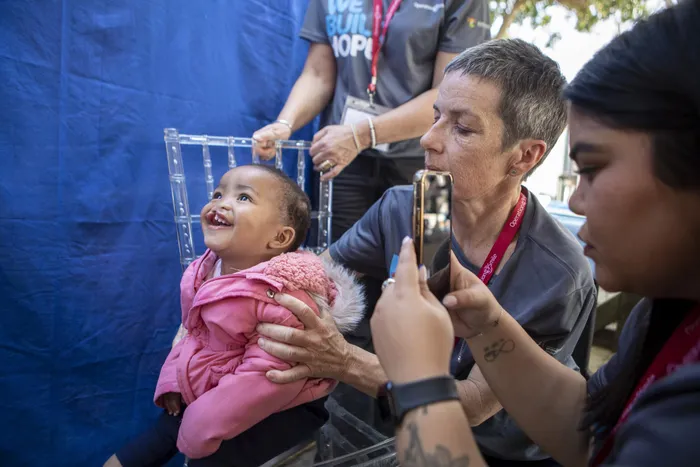Operation Smile South Africa: Transforming lives one smile at a time

A mother seeing her child for the first time post surgery.
Image: Zeke du Plessis
Next month, Nzulu from Ramsgate, KZN, turns three — and for the very first time, he will blow out his birthday candles and enjoy a slice of cake without pain.
His first two birthdays were spent in hospital, undergoing surgeries to repair his cleft, making this year’s celebration a simple joy that once felt out of reach.
After undergoing life-changing cleft lip and palate surgeries through Operation Smile South Africa (OSSA), Nzulu’s own smile can finally shine, reflecting the courage, care and perseverance that brought him here.
This World Smile Day, a new local survey has revealed that many people are surprisingly self-conscious about their smiles: 39% worry about food stuck in their teeth, 20% about crooked teeth, and 16% dislike their “weird smile” in photos. While most take their ability to smile for granted, less than half of the respondents (42%) admitted they’ve held back from smiling in public because of insecurities. But for thousands of South Africans born with cleft lips and palates, the challenges go far beyond minor photo worries, OSSA said.

Rico and his mom Virginia.
Image: Zeke du Plessis
“From his father’s first parent support workshop and the support of our caregiver networks to his first two surgeries and ongoing follow-up care, Nzulu’s journey is a testament to the transformative impact of comprehensive cleft treatment, the dedication of volunteers and the power of community in giving children not just a new smile but a brighter, healthier future,” said OSSA Executive Director Sarah Scarth.
“If we feel uncomfortable smiling because of the small stuff, imagine a smile that needs surgery to shine. That’s why we work to provide free, life-changing treatment to children around the country.”
Since its establishment in South Africa in 2006, Operation Smile has brought smiles to thousands of faces with the support of a volunteer network of medical specialists - and the general public.
“None of our cleft-lip and palate surgeries would be possible without their help,” said Scarth.

Young Kwenzokuhle being screened ahead of surgery with nurse volunteer Petro Archer and volunteer Skye Abrahams.
Image: Zeke du Plessis
Scarth said World Smile Day is celebrated annually on the first Friday of October to encourage acts of kindness and spread happiness through the simple, universal act of smiling. Created in 1999 by Harvey Ball — the artist behind the iconic 1963 smiley face — the day aims to revive the symbol’s original message of goodwill and positivity.
According to the study, most (87%) believe their smile impacts the way people see them. Children’s smiles were top of the list of the smiles people are most impacted by, followed by partners and pets (as much as cats, dogs and birds can smile). Friends were in the rankings, too - many people surveyed however found it impossible to pick one “favourite” smile from the options given.
Loved ones aside, there are many reasons people smile. For some, it’s a “beautiful moment”, or being outside on a nice day. Others said that a funny joke or random act of kindness is what turns their frown upside down. For others still, it’s something as simple as being able to blow out the candles on a birthday cake - something most don’t have to think about.
OSSA said surgery to repair a cleft lip can take as little as 45 minutes.
In encouraging the public to support OSSA's efforts, Scarth said: “You can help change a life today by donating to fund safe, free surgeries for children with a cleft condition."
For more information, visit: www.operationsmile.org.za